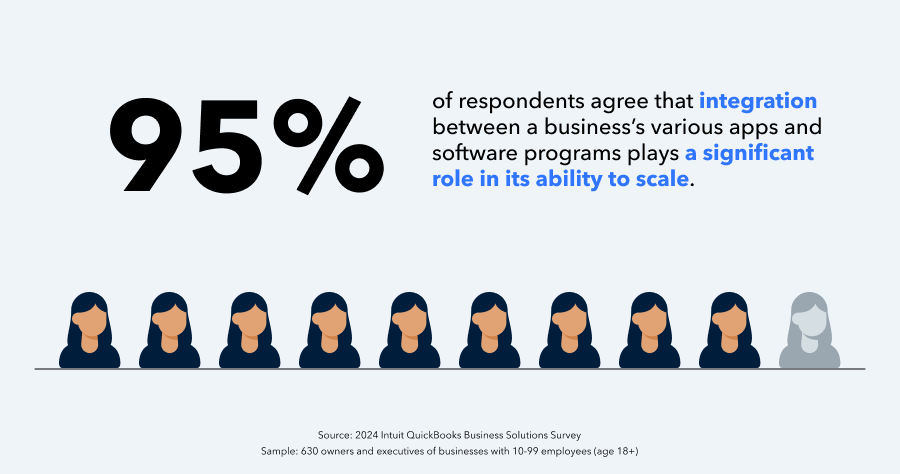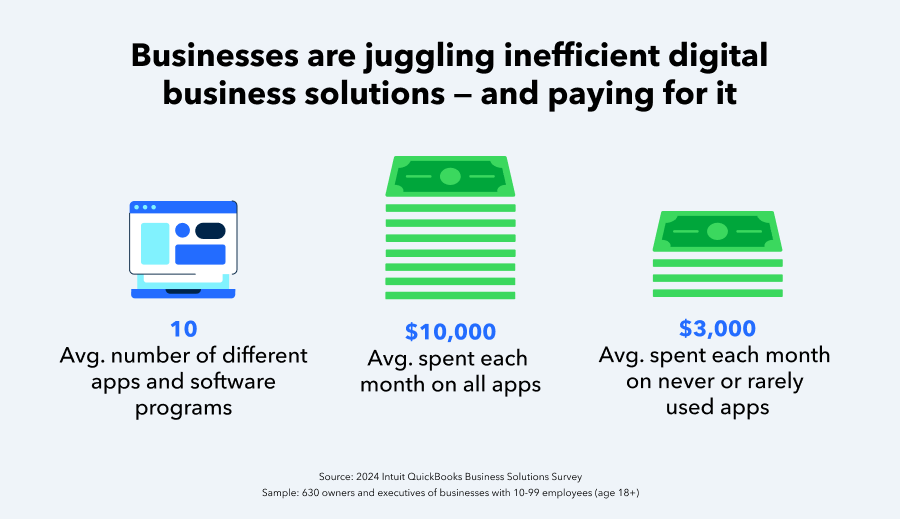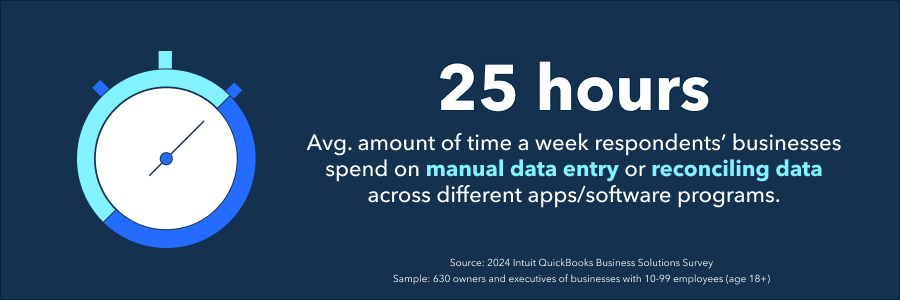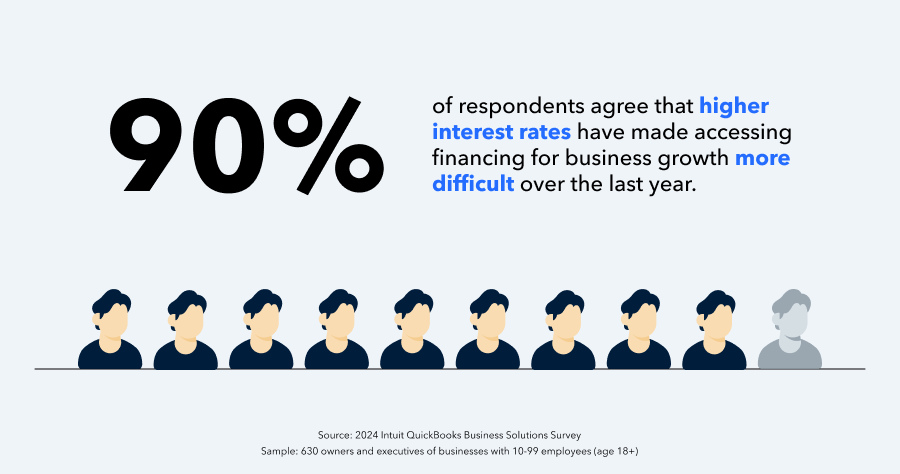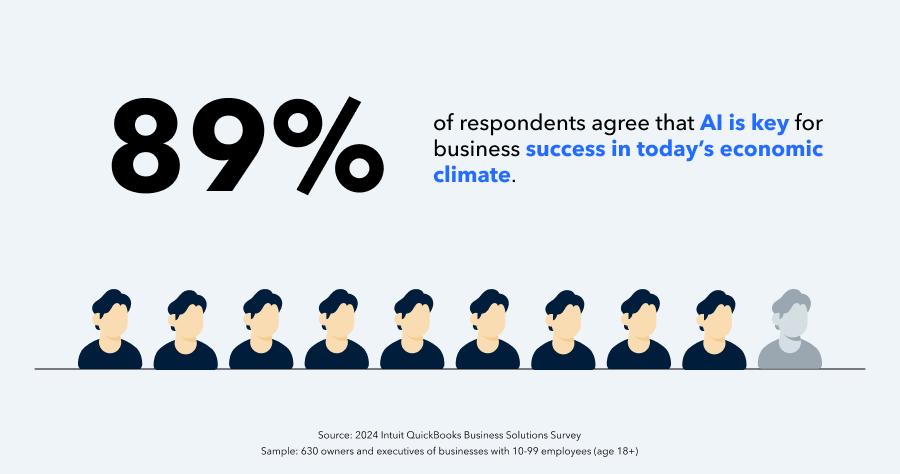Growing businesses understand that scaling up is a marathon, not a sprint. But being weighed down by disconnected digital systems and too many manual tasks can hold businesses back from their full growth potential. Findings from the 2024 Intuit QuickBooks Business Solutions Survey shed light on how integrated business solutions are crucial to keep growth on track. Nine in 10 (95%) respondents agree.
Nearly all (95%) respondents report challenges with their current digital business solutions. From manual and repetitive tasks (54%), to high costs (53%), to inadequate reporting and analysis capabilities (45%), businesses are striving for growth, but struggling with inefficiencies. As the data shows, these challenges negatively impact employee productivity and morale, timeliness of financial reporting, and overall profitability and growth. On average, respondents report their businesses spending 25 hours a week on manual data entry or reconciling data across apps and overspending $3,000 a month on unused software.
Whether looking to hire additional employees, expand to new markets and regions, or offer new products or services, growing businesses need agile and connected digital apps that can help them get there faster and more efficiently. To support growth, respondents want business solutions that provide more automation to streamline processes and reduce manual work (72%) and better integration capabilities (64%) to help take their businesses to the next level.

